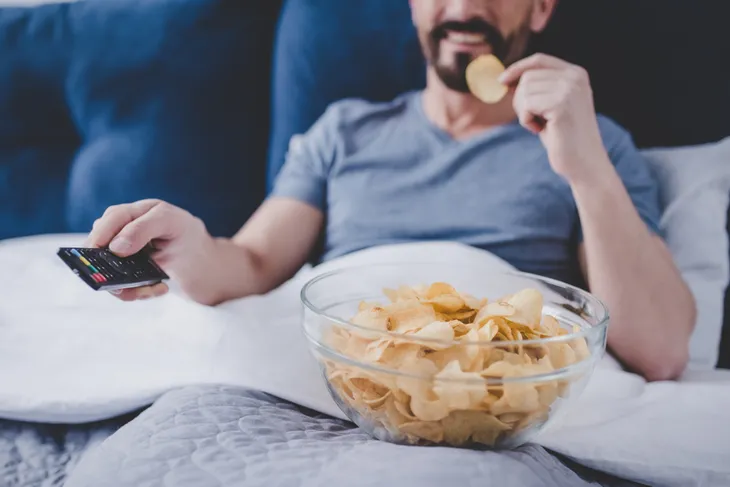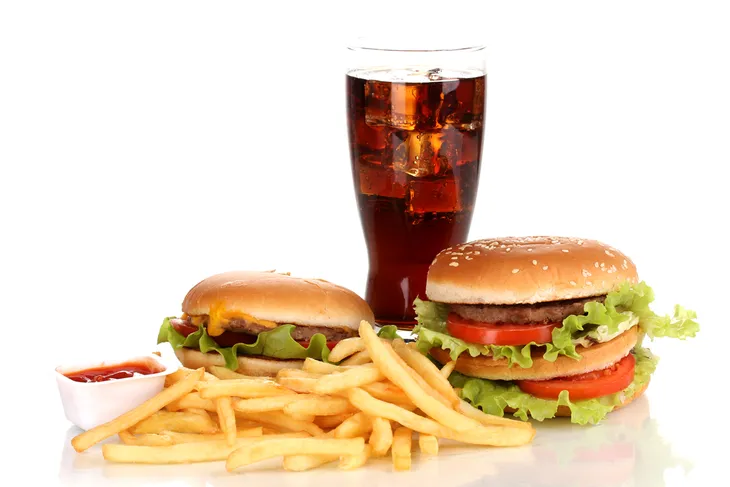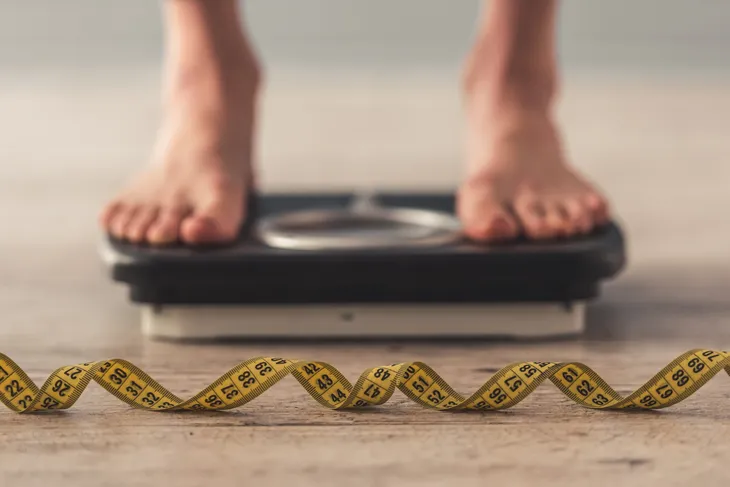Many people don’t recognize the role emotional eating plays in their health. Most blame a lack of willpower for the fact that 95-percent of all diets fail. Whether the diet fails from the get-go or when the dieter regains all the weight shortly after going off their diet, lack of willpower gets the blame.
What many people don’t realize is that emotional eating is often the real culprit. Not only does emotional eating play a pivotal role in obesity, it also plays an important part in disorders such as anorexia, bulimia, and depression. In response to emotional stress people may overeat, binge on sugary, high fat snacks, reach for comfort foods or lose their appetite altogether. Weight goes up and down. All in an attempt to make themselves feel better—if only for the moment.
What makes emotional eating even more difficult to alter is its complex interdependence with physiology.
Eating Out of Boredom
Boredom is an emotion not a signal from your body that you need nutrients and energy. Yet everyday people everywhere mindlessly reach for food to stave off this uncomfortable state of being. Our fast paced society encourages and even praises those who are constantly busy, active and productive.
Conversely, inactivity is seen as lazy, unproductive and is frowned upon. This societal stigma becomes internalized to the point that a person will unconsciously try to fill the void created by boredom. Food, especially high sugar or carbohydrate laden snacks provide an immediate ‘fix’ and energy rush.
Social Eating
We have to eat every day to survive. Starting from the day we are born, eating is a shared activity. It represents comfort, love, acceptance, and security. Elements essential to our very survival. Research has shown that our need for human contact is so powerful that people who are isolated and lack basic human contact are more likely to die prematurely, regardless of any underlying health issues.
This explains why many people have great difficulty saying no to foods offered to them in social settings. If those in your immediate social circle eat high fat, high carbohydrate, calorie laden foods then it stands to reason they expect you to share these foods with them. People want to be accepted by those in their social circle so they eat what is offered.
Comfort Foods
Many of us developed a relationship with “comfort” foods as children. Infants often have a difficult time letting go of the bottle, which they equate with the love and security of breastfeeding. During childhood family mealtimes or special dinners such as Christmas and Thanksgiving can create warm memories mingled with the flavours of favorite dishes and desserts, becoming forever etched into a person’s psyche.
Comfort foods tend to be high fat, carb, sugar- or calorie-laden dishes, that over time, develop a nostalgic and ‘comforting’ association to good times in our past. Comfort foods are culturally diverse and unique to each individual—from grandma’s deep fried chicken to a bowl of Haagen Dazs ice cream. We all have foods that bring back those comforting memories.
Eating to Alleviate Stress
During a stressful life event your body will automatically evoke the fight or flight response to a perceived threat. Your breathing and heart rate increase to pump more oxygenated blood to your muscles. Blood is diverted from your brain to your larger muscles so you can fight or flee. This results in a decrease in your ability to reason as your body is converted into a primitive survival machine. Thinking is not on the agenda. Fighting or running away is.
You reach for high sugar, high carbohydrate foods as they are easily digested and spike your blood sugar levels quickly, making you feel energized and more alert. Ready to face any threat, real or imagined. However, our modern day stressors do not include battle with a sabre-toothed tiger. Our stressors include relationships, finances, housing, employment, etc. Without a physical release all we have done is prep our bodies with extra calories that convert into extra pounds and you guessed it…extra stress!
Eating to Feel Loved
Food can make you feel good. Sugars, salts and fats can release opioid-like substances in the brain much like heroin does. Researcher, Dr. Jennifer Nasser, an associate professor in the department of Nutrition Sciences in Drexel University’s College of Nursing and Health Professions, discovered that when chocolate was placed in a subject’s mouth their pupils dilated in response to the pleasure chemical dopamine released by the retina.
This same response mimics that which occurs when a person is in love or lust. Eating chocolate stimulates the production of serotonin, another ‘feel good neurotransmitter. Like falling in love, chocolate increases your heart rate. This is because chocolate contains a chemical called Theobromine which is quickly absorbed and acts much like caffeine, stimulating your nervous system. Another stimulant found in chocolate, phenylethylamine (PEA) is also a chemical found in higher levels in people who are in love.
Overeating When Depressed
People who are depressed often overeat for all of the reasons mentioned above. In addition they may suffer from cognitive distortions. In other words they aren’t thinking clearly and this applies to their food choices. Motivation and self-esteem may be low, increasing the risk to turn to high calorie comfort foods in an attempt to lift their mood.
Although this may provide some type of short-term mood elevation it quickly backfires with the resultant weight gain. In addition, a person suffering from depression may not have the energy to shop for or prepare healthy meals, turning to convenient fast foods instead.
Under Eating When Depressed
Sometimes people who are depressed go to the opposite extreme and drastically reduce their caloric intake or stop eating altogether. Significant weight loss of more than 5-percent of body weight in a month can be a symptom of depression.
Depression and appetite change are intertwined due to the fact they both originate in the part of the brain called the limbic system. The limbic system not only controls appetite, but is also responsible for regulating emotions. In addition, the medications used to treat depression can also interfere with appetite, causing either weight gain or loss.
Binge Eating
A person, who binges, will eat large amounts of food in a short period of time in an attempt to relieve emotional distress. They may eat an entire bag of Oreo cookies followed by a tub of double fudge ice cream and then feast on an entire coconut cream pie. They tend to eat until their stomach hurts and disregard feelings of fullness. This condition may progress to the eating disorder bulimia in which the person engages in frantic behaviours such as excessive exercising or self-induced vomiting (purging) in order to avoid the weight gain from binging.
On a physiological note, binging elevates blood sugar levels far above the stable baseline, resulting in the release of serotonin and a temporary mood elevation or high. This is quickly followed by the blood sugar levels plummeting far below the baseline resulting in a feeling of fatigue and depression. Thus begins the cycle again.
Anorexia
Anorexia nervosa is a complex eating disorder that is interwoven with emotional issues. It involves starving oneself to an excess of 15-percent lower than healthy body weight. Fear of becoming fat becomes an obsession with food and weight which can prove fatal. This disorder primarily affects young adolescent women but can on occasion affect males and older women. Anorexia may also involve episodes of bulimia interspersed with starvation.
When the body is not supplied with enough nutrients it burns the energy stored in fat cells. Once that is depleted it burns muscle tissue for energy. When this happens protein is released and crosses the blood brain barrier causing cognitive distortions which account for an anorexic’s unrealistic body image in which they see themselves as overweight despite evidence to the contrary.
Cravings
Research studies have found that 98-percent of women and 70-percent of men have experienced food cravings at one time or another. These cravings are often occur when a person is feeling stressed or anxious. Research from the Monell Chemical Senses Center has found that the brain’s hippocampus, insula and caudate are stimulated during food cravings. Study researchers were surprised to discover that the memory center is more relevant to food cravings than the reward center.
Studies on rats have shown that when stressed they prefer to eat high fats and sugars resulting in production of less stress response hormones in the brain and more serotonin, which helps calm the brain. Food cravings in humans usually have an emotional trigger. The foods most craved are high in fats and sugars such as potato chips, French fries, chocolate, ice cream, and cookies. The good news is that cravings and all forms of emotional eating can be controlled. Awareness and education is the first step.













